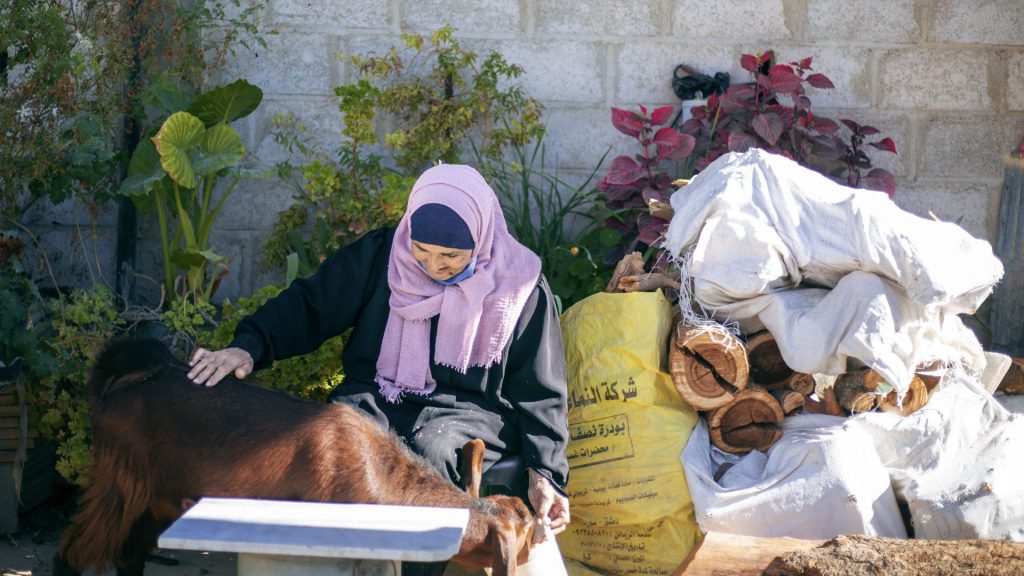
The stacked cardboard pieces next to the three girls’ shoes summarized the desperate conditions that Um Haya family lived during the years of the Syrian crisis.
Escape their home
Aisha recalls the day when she and her family fled from their home in Shabaa in Rural Damascus with nothing but the clothes they wear.
Over the last 7 years, where they lived in Jaramana, Aisha woke up every day at 4 a.m. to put the cardboard pieces back into her daughters’ shoes, “I couldn’t buy new shoes for them, so cardboard was the best way to maintain their shoes in good shape so they can walk to the university,” says Aisha.
The families that Um Haya worked for helped her secure a home for her family, in addition to food and some basic necessities.
A 10 kilometers walk per day
The difficult circumstances that hit the family did not discourage the girls from continuing their studies at the university. “I walked from Jaramana to the Mechanical Engineering College every day, as the cardboard pieces helped me to walk, which was helping me continue my studies and obtain an engineering degree,” says Haya her daughter.
Back to home
After seeing the condition of her almost destroyed house, Um Haya burst into tears, but she quickly wiped her tears and began to clean the rubble of her children’s room
While the family was working to repair their house, they received food and other relief aids, which were distributed by the Syrian Arab Red Crescent, to help the most vulnerable families returning to their homes in Shabaa, to settle down and live well.
Unconditional Cash assistance project
After the family settled in her home, Um Haya worked in raising livestock; but the crazy high prices of fodder items almost make her sell them, nevertheless her access to the unconditional money transfer project prevented her from doing so.
The family received the first grant through Al Haram Company, and will receive the next two grants within the next two months, with the aim of preventing the loss of assets and protecting livelihood activities in the area.
Aisha’s family is one of dozens of families who have benefited from the unconditional money transfers project in Damascus countryside.
